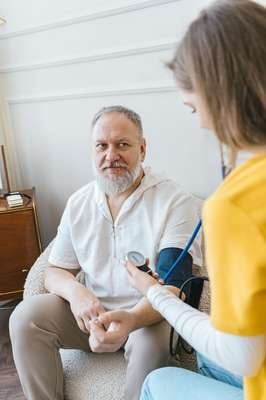Outrage as Endometriosis and Arthritis Downplayed in Now-Deleted Canberra Health Services Video – Are You at Risk?
By
Danielle F.
- Replies 6
Navigating the healthcare system can be a daunting task, especially when dealing with chronic conditions that often require immediate attention. The recent controversy surrounding a Canberra Health Services (CHS) social media video has brought to light the challenges faced by individuals with conditions such as endometriosis and arthritis. The video, which has since been removed, suggested that these conditions were not considered emergencies, sparking outrage and concern among patients and advocacy groups.
The video titled 'Stop! Is it an emergency?' aimed to educate the public on the workings of emergency departments, emphasizing that not all visits necessitate hospital admission. However, the message was not well received when the video stated that 'life and limb-threatening situations' were prioritized and that conditions like endometriosis and arthritis, discovered incidentally during an emergency department visit, were not treated there but referred back to a GP.
This messaging struck a nerve with many, including Jess McGowan, the Canberra community lead for the endometriosis support group QENDO, who felt the video was 'angry' and 'disappointing.' Another woman, Jade, who suffers from endometriosis, shared her harrowing experience of refraining from seeking emergency care during a severe flare-up due to the video's implications. Her symptoms included dizziness, vomiting, and collapsing from pain, yet she felt deterred from visiting the emergency department.
The backlash was swift and clear, with CHS acknowledging that the video was 'not well executed and open to misinterpretation.' They apologized for any confusion or distress caused and have since agreed to meet with representatives from QENDO to discuss the concerns raised.
The incident highlights a broader issue within the healthcare system – the minimization of pain and suffering associated with chronic conditions. Many individuals with endometriosis and arthritis have faced their pain being dismissed or not taken seriously by healthcare professionals. This can lead to a reluctance to seek help in emergency situations, potentially endangering the patient's health.
CHS's response to the outcry includes the establishment of a pelvic pain pathway in emergency departments to ensure consistent, evidence-based care for those presenting with pelvic pain. This is a step in the right direction, but as Ms. McGowan points out, there is a need for better education and understanding among healthcare staff regarding the severity and emergency nature of conditions like endometriosis.
For our readers, especially those living with chronic conditions, it's crucial to understand that you have the right to seek emergency care when experiencing acute pain or symptoms. It's also important to advocate for yourself and communicate the severity of your condition to healthcare providers. If you feel your pain is being minimized or not adequately addressed, do not hesitate to seek a second opinion or escalate your concerns.
The upcoming meeting between CHS and QENDO represents an opportunity for meaningful dialogue and change. It's an occasion to bridge the gap between patient experiences and healthcare provider perceptions, ensuring that all individuals receive the care and attention they deserve.

We at the Seniors Discount Club encourage our members to share their experiences with chronic conditions and emergency care. Have you ever felt dismissed by healthcare professionals? How do you ensure your voice is heard when seeking treatment? Your stories and insights can help others navigate similar challenges and advocate for better healthcare practices. Let us know in the comments below!
The video titled 'Stop! Is it an emergency?' aimed to educate the public on the workings of emergency departments, emphasizing that not all visits necessitate hospital admission. However, the message was not well received when the video stated that 'life and limb-threatening situations' were prioritized and that conditions like endometriosis and arthritis, discovered incidentally during an emergency department visit, were not treated there but referred back to a GP.
This messaging struck a nerve with many, including Jess McGowan, the Canberra community lead for the endometriosis support group QENDO, who felt the video was 'angry' and 'disappointing.' Another woman, Jade, who suffers from endometriosis, shared her harrowing experience of refraining from seeking emergency care during a severe flare-up due to the video's implications. Her symptoms included dizziness, vomiting, and collapsing from pain, yet she felt deterred from visiting the emergency department.
The backlash was swift and clear, with CHS acknowledging that the video was 'not well executed and open to misinterpretation.' They apologized for any confusion or distress caused and have since agreed to meet with representatives from QENDO to discuss the concerns raised.
The incident highlights a broader issue within the healthcare system – the minimization of pain and suffering associated with chronic conditions. Many individuals with endometriosis and arthritis have faced their pain being dismissed or not taken seriously by healthcare professionals. This can lead to a reluctance to seek help in emergency situations, potentially endangering the patient's health.
CHS's response to the outcry includes the establishment of a pelvic pain pathway in emergency departments to ensure consistent, evidence-based care for those presenting with pelvic pain. This is a step in the right direction, but as Ms. McGowan points out, there is a need for better education and understanding among healthcare staff regarding the severity and emergency nature of conditions like endometriosis.
For our readers, especially those living with chronic conditions, it's crucial to understand that you have the right to seek emergency care when experiencing acute pain or symptoms. It's also important to advocate for yourself and communicate the severity of your condition to healthcare providers. If you feel your pain is being minimized or not adequately addressed, do not hesitate to seek a second opinion or escalate your concerns.
The upcoming meeting between CHS and QENDO represents an opportunity for meaningful dialogue and change. It's an occasion to bridge the gap between patient experiences and healthcare provider perceptions, ensuring that all individuals receive the care and attention they deserve.
Key Takeaways
- Canberra Health Services posted a video implying conditions like endometriosis and arthritis were not emergencies, causing public backlash.
- The video was removed after being criticized for being poorly executed and open to misinterpretation.
- CHS has apologised for any confusion or distress caused by the video and will meet with representatives from an endometriosis support group.
- CHS acknowledged the need for improved understanding of conditions like endometriosis within the health system and has established a pelvic pain pathway in emergency departments.








